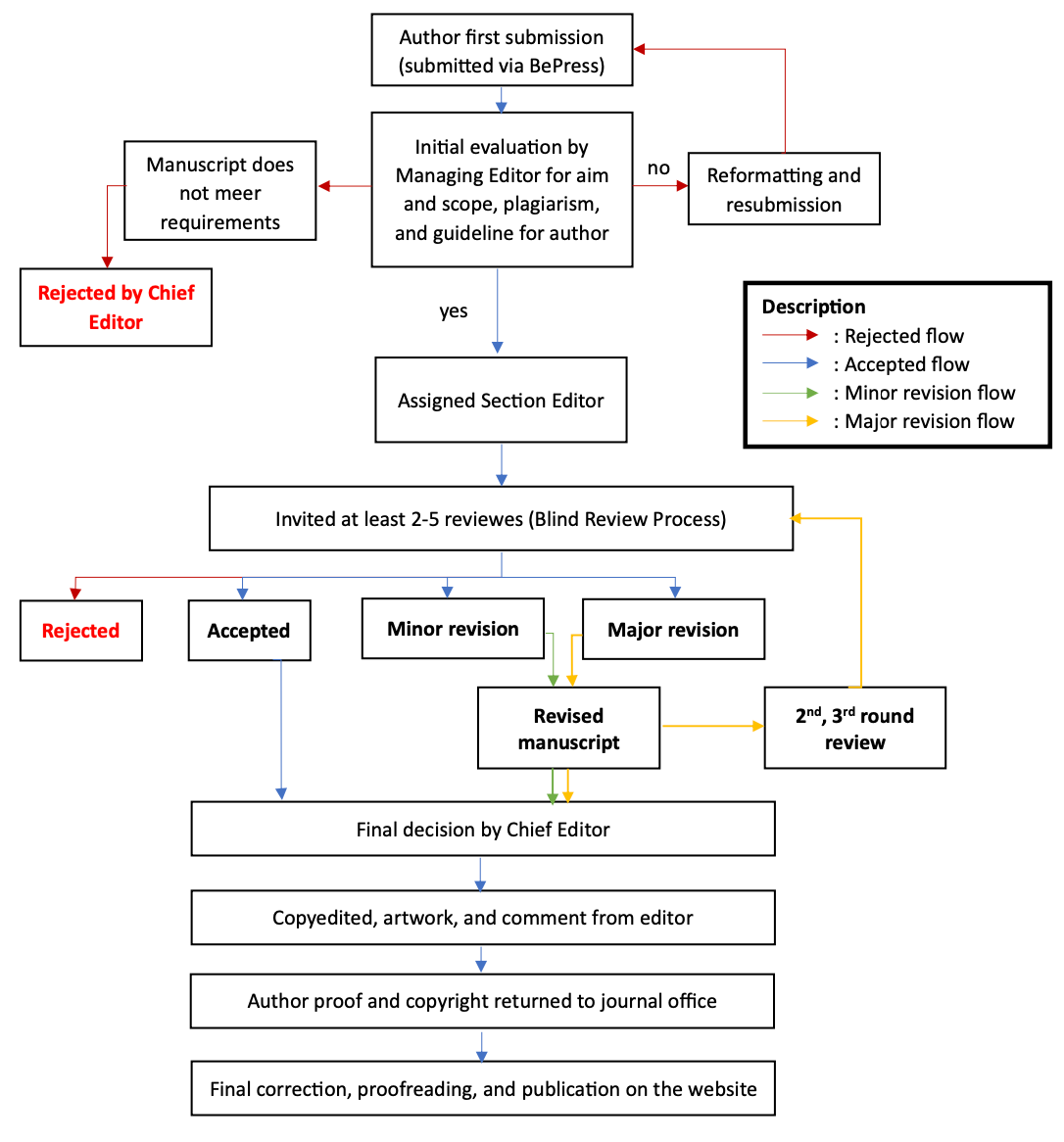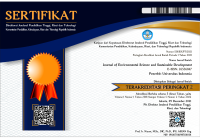Peer Review Process

All submissions to the Journal of Environmental Science and Sustainable Development undergo a rigorous peer-review process to ensure the quality and validity of the published research. The journal utilizes a double-blind peer review process, ensuring that both authors and reviewers remain anonymous. The review is conducted by experts in the relevant fields who evaluate the submitted manuscripts based on their scientific merit, originality, and relevance to the journal's scope.
- Initial Check: Upon receipt of a manuscript, the editorial board will perform an initial evaluation to confirm that the manuscript aligns with the journal's scope and adheres to publication guidelines. Manuscripts that do not meet these requirements will be rejected without further review. Manuscripts with more than 20% similarity will also be rejected at this stage. The editorial office will verify formatting and citation styles according to the specified author guidelines. If the manuscript does not meet the required conditions, it will be returned to the author for reformatting and resubmission. If it passes this initial check, the manuscript will be sent to reviewers.
- Peer Review: The editorial board will assign independent reviewers who are experts in the relevant field of study and have experience in the manuscript's research area. Reviewers will be blinded to the authors’ identities, and authors will be blinded to the reviewers' identities. The names of the authors, acknowledgments, and references to author contributions must be removed from the manuscript and submitted in a separate title page file. The assigned editor will invite reviewers, ensuring they are affiliated with different institutions from the corresponding authors. Reviewers will consider the invitation based on their expertise, potential conflicts of interest, and other relevant criteria.
- Revision Decision: After the review process, the editor-in-chief will make a decision regarding the acceptance, rejection, or revision of the manuscript based on the reviewers’ feedback. This decision will be communicated to the author. If there is significant disagreement among reviewers, the academic editor may invite an additional reviewer to assess the manuscript before making a final decision. The editor will send the decision (including acceptance, rejection, or the need for major or minor revisions) to the author via the online system, along with relevant comments from the reviewers. In keeping with our double-blind peer-review principle, all comments and suggestions will remain anonymous.
- Revised Submission: If the manuscript is accepted with revisions, authors will be asked to revise the manuscript based on the reviewers' feedback and resubmit it. The revised submission must include the revised manuscript with highlighted changes and a rebuttal letter.
- Subsequent Peer Review: The major revised manuscript will undergo a second round of review by the same reviewers to determine whether the revisions adequately address their feedback. For minor revisions, a subsequent review may not be necessary.
- Preliminary Acceptance: Once the manuscript has successfully passed the review process, preliminary acceptance will be granted.
- Formal Acceptance: Following preliminary acceptance, the final version of the manuscript will undergo copyediting and formatting for publication, with formal acceptance occurring thereafter.
This peer review process ensures that all manuscripts submitted to the Journal of Environmental Science and Sustainable Development are evaluated according to the highest standards of scientific integrity and ethical conduct, guaranteeing that only the highest quality research is published.






